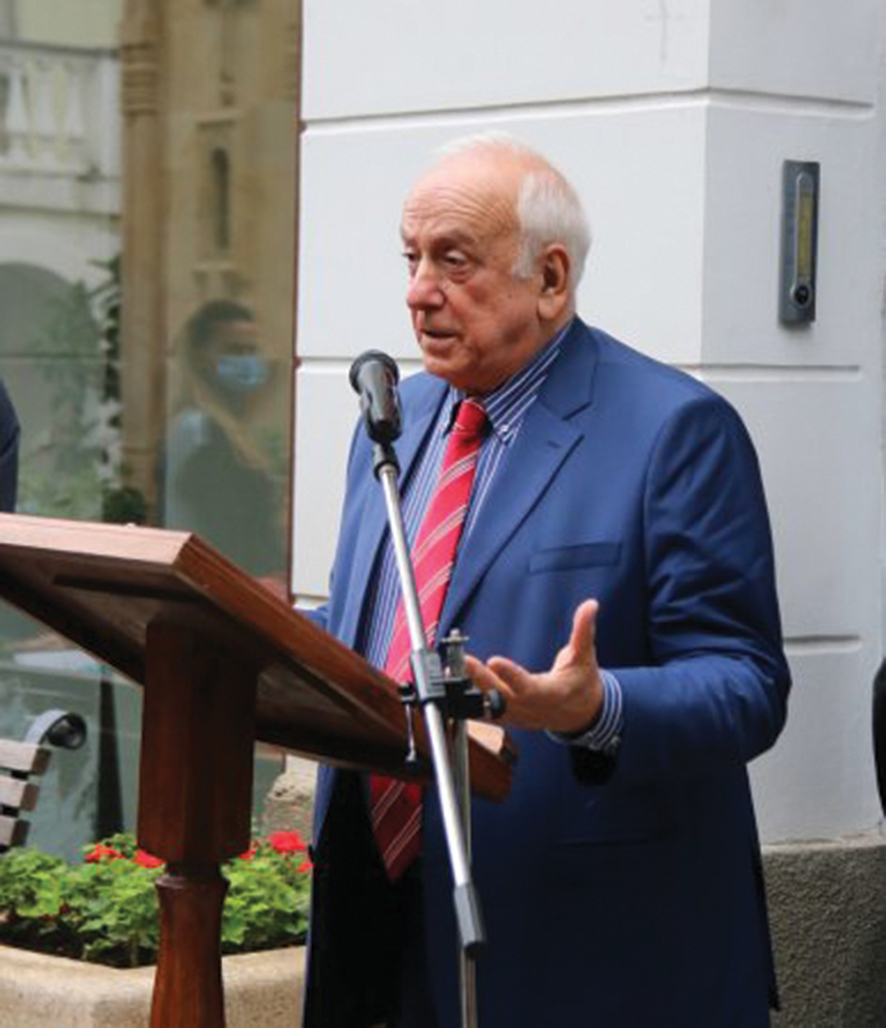The ongoing argument about the prospect of Georgia’s development has us contemplating whether this country should take an economic direction, oriented toward the service industry, or should rather give preference to selling its intellectual capabilities and scientific achievements to the world beyond. The ideal option might be a double-barrel approach, if we can afford it, though looking both ways simultaneously could be a little problematic at this point, because we are right now in bad need of some “quick cash” for people’s general comfort. It is funny that in those bad soviet times, scientific research as such was almost the number one priority in the state budget of the country, whereas in modern good times, science has acquired the role of a poor cousin of our economics.
Against this somewhat uncomplimentary background, news came out of the blue about the appearance of a new monograph by Giorgi Kvesitadze, Professor and recently retired President of the National Academy of Sciences of Georgia, the author of more than 150 publications on environmental science, chemistry, microbiology and biotechnology, and Professor Alexander Potemkin, a citizen of Germany, investor in scientific and commercial projects, writer, environmentalist, author of more than 30 monographs and several critiques. The authors, who definitely make the world a better place with their wonderful cooperation, want to believe that the results of their research will arouse scientific interest and find practical application in global academic circles. Their hope is well-founded, and is strong enough to overpower the proclivity of todays’ world rulers to unleash their appetites for solving humanity’s ills by saber-rattling rather than peaceful, scientific means.

The book is titled ambitiously ‘Homo Sapiens and the Technogenic Environment’. It reconnoiters the current environmental problems, doubtlessly conducive to a disaster, affecting all living organisms on our planet, with research conducted by the authors describing the dire environmental conditions in which the dwellers of Planet Earth find themselves at risk of inevitable extinction due to their rampant consumerism and disregard for reasonable environmental exigencies. It then presents an environmental concept on a worldwide scale designed to delay by several decades said disaster. This outstanding work establishes the planet’s resource potential and all of its vital supplies- water, gas, oil, basic minerals and fertile soil, discussing the ways to modify our lifestyles under the present conditions. The authors present and statistically corroborate the most important facts, directly related to humanity’s immediate future: The planet’s capacity to satisfy the demands of it human consumers is running out; the global population is increasing at an annual rate of 80-100 million people, and as such, it is obvious that an environmental disaster is on the horizon. The monograph proposes a new innovative technology for purifying biological niches from toxic substances as a way out of this critical situation. The enormous importance of the problem has prompted concern about the fate of the planet, and the innovativeness of the solutions presented can hopefully make a practical contribution to saving the human species.
Incidentally, and of course delightfully, this was all revealed through recent correspondence between the well-known natural science researcher Michael Murphy and Lord David Owen, the famous British politician and physician. It was thanks to their priceless evaluation of this significant scientific study fact that the remarkable effort of the authors became known to the world in good time, to the benefit of us all, the living and future inhabitants of the Earth.
Concerning Academician Giorgi (Otar) Kvesitadze, now 81 years of age, this Georgian science guru has spent his entire long and interesting life totally immersed in deep and meaningful biological and biochemical scientific research, never forgetting that there is regular human life around, full of sports and cultural activities, cherished traditional values, friends and family that had to be taken care of, and love for fellow humans that had to be attended to. Based on his life’s philosophy and the belief in his own strengths and endeavors, we can rightfully expect many more valuable monographs by him for us to read and enjoy.
Op-Ed by Nugzar B. Ruhadze














